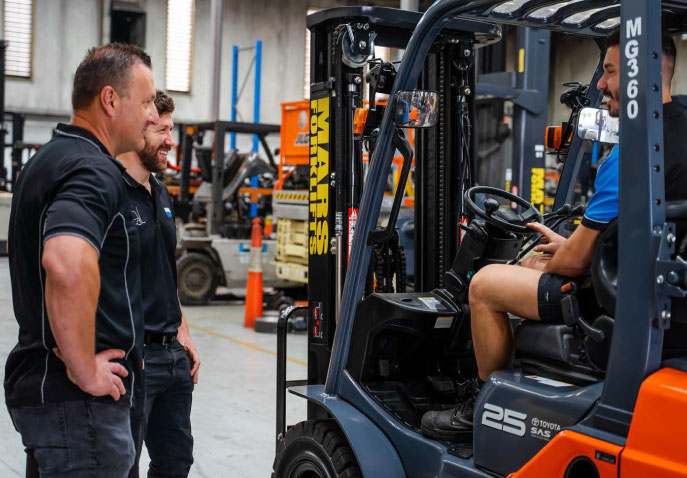In today’s fast-paced industrial environments, forklift technology is undergoing significant transformations to meet the increasing demands of efficiency, safety, and sustainability. As businesses look to optimize their operations, the integration of advanced technological features in rental forklifts becomes critical. This article delves into the latest advancements in forklift technology, highlighting features such as automation, IoT integration, and advanced safety systems that are revolutionizing the capabilities of modern forklifts available for hire.
Automation in Forklifts: Paving the Way for Efficiency
The advent of automated forklifts marks a monumental shift towards increased productivity and operational efficiency in warehouses and distribution centers. These forklifts are equipped with sophisticated sensors and software that enable autonomous navigation around the workspace, reducing the burden on human operators and minimizing the risk of errors. Automation also helps in consistent performance, which is crucial during peak operational hours, thereby significantly enhancing throughput.
Integration of IoT: Smarter Operations
Internet of Things (IoT) technology in forklifts allows for the seamless collection and analysis of data, which is pivotal in optimizing fleet management and operational decisions. IoT-enabled forklifts can communicate with other industrial systems, providing real-time insights into vehicle status, maintenance needs, and even operator behavior. This connectivity not only ensures the health of the equipment but also promotes a proactive approach to maintenance, ultimately reducing downtime and extending the lifespan of the machinery.
Advanced Safety Systems: Ensuring Worker Protection
Modern forklifts are increasingly being equipped with advanced safety systems, such as **collision avoidance sensors, automatic speed control, and stability enhancement technology**. These features help in mitigating workplace accidents and ensure compliance with safety regulations. For example, collision avoidance sensors can detect the presence of obstacles or personnel in the operational pathway and automatically adjust the forklift’s movement to prevent accidents.

Energy Efficiency and Sustainability: The Green Revolution
With an increasing focus on sustainability, many forklift manufacturers are now offering models that run on alternative fuels and electric power. Electric forklifts, in particular, offer the dual benefits of reducing emissions and lowering operational costs, as electricity can be a more cost-effective energy source compared to traditional fuels. Additionally, these forklifts operate more quietly, reducing noise pollution and enhancing the working conditions for employees.
Choosing the Right Forklift Rental: Factors to Consider
When selecting a forklift rental, businesses should consider several key factors to ensure they receive the best return on investment:
- Capacity and Suitability: Ensure the forklift meets the specific operational requirements, such as load capacity, lift height, and terrain adaptability.
- Technological Features: Choose forklifts that are equipped with the latest technology to enhance productivity and safety.
- Fuel Type: Consider the work environment and choose between electric, diesel, or gas-powered models based on operational needs and sustainability goals.
- Rental Terms and Support: Opt for rental services that offer flexible terms and comprehensive support, including maintenance and training services.
The Future of Forklift Technology
The future of forklift technology is poised for further innovation, with trends such as **machine learning, augmented reality (AR), and the continued evolution of battery technology** shaping the next generation of industrial vehicles. These advancements promise even greater efficiencies, safer operations, and a lesser environmental footprint.
In conclusion, the integration of advanced technologies in forklifts is transforming the landscape of industrial operations. Businesses looking to rent forklifts should consider these emerging trends and technologies to stay competitive in their respective industries. By selecting technologically advanced forklifts, companies can achieve higher productivity, enhanced safety, and improved sustainability in their operations.


